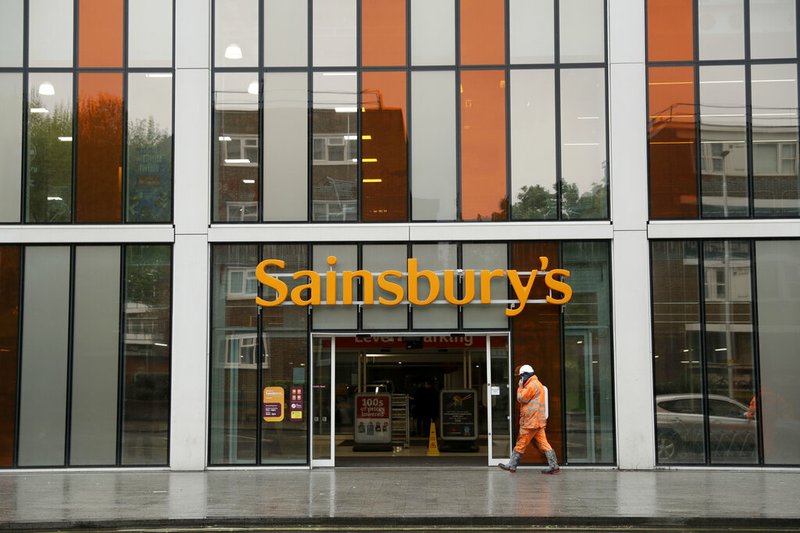Regulators in Britain on Thursday rejected Walmart Inc.'s proposed sale of its U.K. subsidiary, Asda, to rival supermarket chain Sainsbury's, and the companies agreed to call off the deal.
The Competition and Markets Authority's final report on the proposed merger concluded that U.K. shoppers and motorists would be worse off if the deal went through. Stuart McIntosh, chairman of the agency's inquiry group, said in a news release that its in-depth investigation found the reduced supermarket competition would cause price increases, reductions in the quality and range of products available, and a poorer overall shopping experience.
Walmart agreed a year ago to sell Asda to Sainsbury's for about $9.4 billion. The Bentonville retailer planned to keep a 42 percent stake in the merged company. Walmart acquired Asda in 1999 for $10.8 billion in what was its largest transaction until May 2018, when it bought a majority stake in Indian e-commerce firm Flipkart Group for $16 billion.
The merger would have created the U.K.'s largest grocery chain, surpassing Tesco. Asda earlier this month replaced Sainsbury's in the No. 2 spot, according to industry data from research firm Kantar.
Thursday's report was largely unchanged from a provisional report the agency released in February. In the earlier report, regulators identified 629 neighborhoods throughout the U.K. where the merger would create reduced competition.
Both Asda and Sainsbury's pledged to sell stores, cut prices and make other concessions to earn regulators' approval. However, McIntosh said, "Detailed analysis of the impact of the deal clearly showed that, overall, the merger would reduce competition in the market and is more likely to lead to price rises than price cuts."
The agency also carefully considered industry developments such as increased competition from German discount grocery chains Lidl and Aldi, McIntosh said. Still, he said, these issues "did not allay its serious competition concerns about the merger."
Investors weren't scared off by Thursday's news. Walmart's stock price climbed steadily throughout the day's trading, although shares dropped 1 cent, or 0.01%, in the final hours to close at $103.52 on the New York Stock Exchange. Walmart's shares have traded between $81.78 and $106.21 in the past year.
Judith McKenna, chief executive officer of Walmart International, said in a news release that, while Walmart is disappointed with the regulatory agency's conclusions, "Our focus now is continuing to position Asda as a strong U.K. retailer delivering for customers. Walmart will ensure Asda has the resources it needs to achieve that."
McKenna noted Asda's seven consecutive quarters of year-on-year growth in one of the world's most competitive retail markets. She said this signifies "a strong business with a clear strategy and focused leadership."
"It was against that backdrop that we decided to explore the proposed merger with Sainsbury's -- an opportunity which would have further strengthened the Asda business and delivered real benefits for U.K. customers."
McKenna gave no indication of Walmart's plans for Asda going forward.
Laura Kennedy, vice president at Kantar Consulting, said in an email that the deal's collapse "definitely puts a crimp in Walmart's broader strategy to concentrate on its productive, profitable businesses [in the U.S., Canada and Mexico] and use those to fuel its growth markets [India and China]."
However, the retailer also has run into regulatory issues in India, where its purchase of a 77% stake in Flipkart was intended to allow Walmart to sell directly to India's burgeoning middle class. But a Feb. 1 mandate enforcing India's protectionist trade regulations prohibits foreign retailers from selling products via companies in which they have an equity interest.
Walmart has reaffirmed its commitment to its Indian investments, though. On a recent visit to Bengaluru, India, to meet with executives and other employees of Flipkart, Walmart India, Walmart Global Sourcing and Walmart Labs, Chief Executive Officer Doug McMillon said the retailer is in the Indian market for the long term.
The company said in November that it will open 47 more wholesale stores in India by 2022, at a cost of about $500 million. Along with its 22 existing stores, these will serve the country's many small mom-and-pop retailers.
Walmart has more than 11,300 stores in 27 countries, in addition to its e-commerce business. It employs more than 2.2 million people worldwide.
A Section on 04/26/2019

